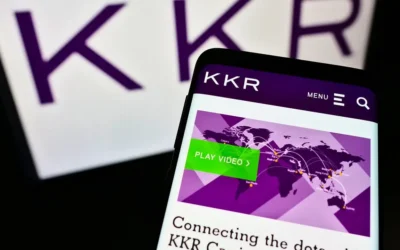Kobalt Music has been shopping its Kobalt Music Royalty Fund II, sources say, and is now involved in final negotiations or may have already closed the deal – which sources say is the $1bn ball park – possibly with a group of investors that includes private equity firm KKR.
As for Kobalt, the company was up on the block in the second half of 2020 when it was trying to get $1bn for just its publishing administration operation. At the time it was said to also be shopping its other assets to, which in addition to the Royalty Fund II, also included Kobalt’s AMRA performance rights organization, its neighboring rights operation and its AWAL indie distribution business.
Since then, Kobalt sold Kobalt sold its Royalty Fund I to Hipgnosis in November, and in April sold AWAL and its neighboring rights operation to Sony Music Entertainment for $430m – although that deal is still under scrutiny by the U.K. regulatory agency.
This deal, if confirmed, continues the incursion of big private equity into the music asset marketplace. On Thursday reports surfaced that Blackstone was doing a deal to back Merck Mercuriadis’ The Family (Music) Ltd. with $1bn in funding to buy music assets, and that Apollo is backing the new firm of HarbourView Equity Partners launched by former Temp Music and Morgan Stanley executive Sherrese Clarke Soares.
Free Webinar: The Future State of M&A: Gaining the Competitive Edge with Digitalization
- Common barriers GPs face during the M&A process
- How AI and machine learning can optimise the M&A process
- The outlook for M&A in 2022
This time around, for Kobalt’s Music Royalty Fund II, sources indicate it was a narrow search for potential bidders.
Kobalt is in negotiations with one of the big private equity players that have come into the music marketplace over the last few years, sources say, with most suggesting KKR is working with a consortium of other buyers.
Besides this possible deal, KKR is already in bed with BMG, and announced in April that it plans to invest up to a $1bn in music assets through that arrangement. These could be related, but in the past BMG management has said it doesn’t want to buy a platform because its already built its own, and other sources say that BMG and KKR have the right to make separate deals. For example, the deal BMG just did for the Tina Turner royalties, image and likeness was solely done by the music company, without any input from KKR.
With all these sales, it appears Kobalt leadership is transitioning back to its original iteration as a music publishing administration platform that includes creative services and its AMRA performance rights organization.
The Kobalt Music Copyrights Fund II is believed to contain the SONGS publishing catalog it acquired in 2017 for about $150m, which includes such songs as Lorde’s “Royals,” The Weeknd’s “Can’t Feel My Face,” “The Hills,” and “Starboy,” Major Lazer’s “Lean On,” and Desiigner’s “Panda.” It is believed to also hold the Insieme Music catalog, which it acquired from Glassnote, and the David Hodges catalog, which includes songs he has written for Evanescence, Kelly Clarkson, Christina Perri, Ed Sheeran and others.
Sources say it also currently includes the master recording catalog of Glassnote Records. That deal was initially described as a partnership and a distribution deal back in November 2018, but at the time Glassnote and Alvarium executives – the latter firm was the investment bank that shopped the Glassnote deal – denied that Glassnote had sold its recording master catalog, even though Alvarium issued a financial tombstone saying that the deal was for $80m – a pretty good indication that it wasn’t just used to pay a distribution advance, as some inside sources then claimed. Of course, that deal also probably included the previously mentioned Insieme publishing operation, which probably sold for about $5m, Billboard estimates.
The SONGS catalog was expected to have $12m in net publishers’ share in 2018; while the Insieme catalog generated about $200,000 in net publisher’s share that year; and the Hodges catalog generated about $500,000 in net publisher share, sources tell Billboard.
Collectively, that adds up to $12.7m, which if they achieved 10% growth a year, would put NPS at about $15.4m for 2020. At an 18-20 times multiple, that would imply a valuation of about $275m to $310m, well short of the rumored $1bn deal. As for Glassnote’s potential contribution, that label has about $25m-$40m in annual revenue, Billboard estimates, but its unclear how much net label share – gross profit after cost of goods – the catalog generates. And while Kobalt hasn’t announced any other big acquisitions, it could have made them for additional master recording or publishing catalogs, since since the company announced at the end of 2017 it had received $600m in commitments – $345m in equity and presumably $255m in debt – to buy music copyrights. In either event, the company could easily reach what sources say is $55m in net publishers share, if the fees from the publishing administration platform were included.
Collectively, the publishing administration operation and the AMRA operation contribute $44.37m in gross profits to the overall Kobalt Music Group. Combined with the Royalty Fund II known music publishing acquisitions described above, that adds up to about $59m in NPS. Yet, sources say the platform isn’t a part of the imminent deal.
Kobalt declined to comment for this story, saying the company “does not comment on deal rumors or speculation.” KKR also declined to comment while Glassnote did not respond to requests for comment.
Source: Billboard
Can’t stop reading? Read more
KKR-backed Optiv enters private debt talks as $1bn maturity wall looms
KKR-backed Optiv enters private debt talks as $1bn maturity wall looms KKR-owned cybersecurity...
Permira set for $3bn Golden Goose exit as HongShan circles Italian luxury brand
Permira set for $3bn Golden Goose exit as HongShan circles Italian luxury brand Permira is in...
CPE to invest $350m in Burger King China joint venture with Restaurant Brands International
CPE to invest $350m in Burger King China joint venture with Restaurant Brands International...




